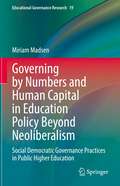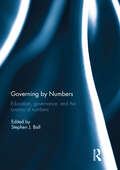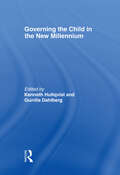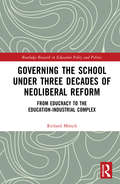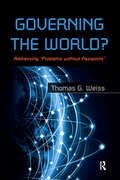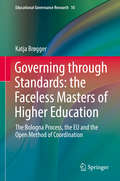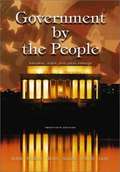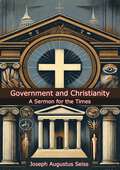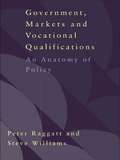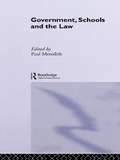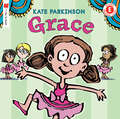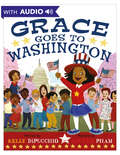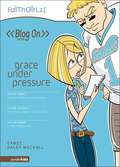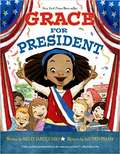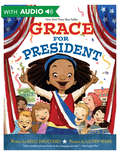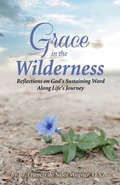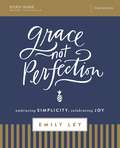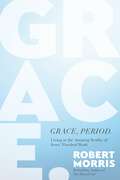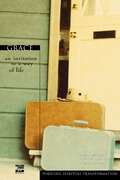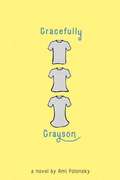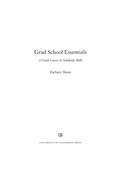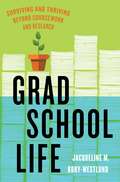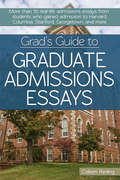- Table View
- List View
Governing by Numbers and Human Capital in Education Policy Beyond Neoliberalism: Social Democratic Governance Practices in Public Higher Education (Educational Governance Research #19)
by Miriam MadsenThis book addresses governing by numbers and human capital policy in higher education by asking how higher education is quantified, how the quantitative information is used in educational governance, and how the information is perceived by students, teachers, managers, and policymakers, and affects decision-making. It also thematically discusses how human capital theory affects the quantification practices and, thereby, their effects. Based on these analyses, the book asks whether governing by numbers and human capital in education policy are necessarily neoliberal practices, and thus questions the theory of global convergence in educational governance.The book provides a thorough analysis of the quantification of graduate outcomes based on the philosophical framework of Agential Realism, thus offering a novel analytical approach to the study of data and indicators in educational governance. The book draws on a comprehensive ethnographic case study from Danish higher education, and relates the findings from this case study to empirical cases in other countries and international research in the field. The book brings together literature from various fields, including political science, accounting, education, and sociology of quantification, in order to provide a comprehensive account of how quantification practices affect education.
Governing by Numbers: Education, governance, and the tyranny of numbers
by Stephen J. BallSocial science researchers have become increasing attentive to the role of numbers in contemporary life. Issues around big data, national test results, and output and performance statistics are now routinely reported and debated in the media. Numbers are a powerful resource for governments as a means to manage and ‘improve’ their populations, and we are increasingly represented, organized and driven by an economy of numbers, which inserts itself into more and more aspects of our lives. This book critically addresses some of the ways in which numbers are deployed in educational governance and practice, and some of the consequences of this deployment for what it means to be educated, to teach, and to learn. Recognising that numbers do not simply represent, but that they change things and have real effects, allows us to move beyond a system where difficult and important issues about what we want from education and from teachers are side-stepped in the push to ‘improve our numbers’. This collection offers a set of starting points from which we might speak back to numbers, drawing on research to explore how numbers change the way we think about ourselves and what we do. This book was originally published as a special issue of the Journal of Education Policy.
Governing the Child in the New Millennium
by Gunilla Dahlberg Kenneth HultqvistThe contributors and editors of this volume begin from the assumption that the changes wrought by globalization compel us to reflect upon the status of the child and childhood at the end of the 20th century. Their essays consider what techniques and technologies are used to govern the child, what role the family plays, what is global and what is culturally specific in the changes, and how the subject is constructed and construed.
Governing the School under Three Decades of Neoliberal Reform: From Educracy to the Education-Industrial Complex (Routledge Research in Education Policy and Politics)
by Richard MünchThis book provides a critical analysis of the neoliberal reform agenda of the economic governance of schools. Focusing on the role of the United States in this process, it explores the transformation of schools in this agenda from educational establishments to enterprises in a competitive education market. The study uses Bourdieu to apply a field-theoretical framework to a detailed empirical analysis of the current changes of school government. Chapters explore education bureaucracy, reform and the effect of outside organizations on pedagogy and testing. The book reveals how far the promises of corporate education reform are from reality and concludes with a plea for a realistic view of school’s capabilities. It goes beyond the state of the art with its focus on how the governance of education, school and instruction is changing with the replacement of educracy by an education-industrial complex. The book will be of great interest for academics, postgraduate students, administrators and politicians in the field of education policy, the governance of school systems and schools. The book also has an international appeal as it studies a global transformation of the field of education.
Governing the World?: Addressing "Problems Without Passports"
by Thomas G. WeissProblems posed by Syria s chemical weapons attacks, Egypt s ouster of an elected government, and myriad other global dilemmas beg the question of whether and how the world can be governed. The challenge is addressing what former UN Secretary-General Kofi Annan called Problems without Passports environmental, economic, humanitarian, and political crises that threaten stability, prosperity, and even human survival. Everything is globalized everything "except" politics, which remain imprisoned behind national borders. The world has changed, but our basic way of managing it has not. We pursue fitful, tactical, short-term, and local responses for actual or looming threats that require sustained, strategic, longer-run, and global actions. With clarity and passion, Thomas G. Weiss argues for a diversity of organizational arrangements some centralized, some decentralized and a plurality of problem-solving strategies some worldwide, some local. He proposes a three-pronged strategy: the expansion of the formidable amount of practical global governance that already exists, the harnessing of political and economic possibilities opened by the communications revolution, and the recommitment by states to a fundamental revamping of the United Nations."
Governing through Standards: The Bologna Process, the EU and the Open Method of Coordination (Educational Governance Research #10)
by Katja BrøggerThis book offers an empirical and theoretical account of the mode of governance that characterizes the Bologna Process. In addition, it shows how the reform materializes and is translated in everyday working life among professors and managers in higher education. It examines the so-called Open Method of Coordination as a powerful actor that uses “soft governance” to advance transnational standards in higher education. The book shows how these standards no longer serve as tools for what were once human organizational, national or international, regulators. Instead, the standards have become regulators themselves – the faceless masters of higher education. By exploring this, the book reveals the close connections between the Bologna Process and the EU regarding regulative and monitoring techniques such as standardizations and comparisons, which are carried out through the Open Method of Coordination. It suggests that the Bologna Process works as a subtle means to circumvent the EU’s subsidiarity principle, making it possible to accomplish a European governance of higher education despite the fact that education falls outside EU’s legislative reach. The book’s research interest in translation processes, agency and power relations among policy actors positions it in studies on policy transfer, policy borrowing and globalization. However, different from conventional approaches, this study draws on additional interpretive frameworks such as new materialism.
Government By the People: National, State, and Local Version (20th Edition)
by James Macgregor Burns Thomas E. Cronin Paul C. Light David B. Magleby J. W. Peltason David M. O’brienGovernment by the People is considered the most authoritative text, educating students to understand how the American political system works.
Government Spending on Health Care and Education in Croatia: Efficiency and Reform Options
by Etibar Jafarov Victoria GunnarssonA report from the International Monetary Fund.
Government and Christianity: A Sermon for the Times
by Joseph Augustus SeissGovernment and Christianity: A Sermon for the Times by Joseph Augustus Seiss is a thought-provoking and timely discourse on the relationship between civil authority and Christian faith. Delivered during a period of political and social upheaval in the 19th century, Seiss offers a compelling argument for the compatibility of governance and Christianity, emphasizing the role of faith in fostering justice, order, and moral responsibility within society.Seiss contends that effective governance must be rooted in divine principles, asserting that Christianity provides the ethical foundation necessary for laws and institutions to serve the common good. Through scriptural references and theological insights, he examines how Christian values—such as justice, mercy, and personal accountability—should inform both the actions of rulers and the behavior of citizens. He also addresses the dangers of secularism and the need for moral guidance in public life.The sermon speaks to the responsibilities of both leaders and the governed, urging individuals to align their civic duties with their religious convictions. Seiss emphasizes that true liberty is only sustainable when grounded in the principles of righteousness, warning that neglecting Christian ethics can lead to societal decay. His message resonates with those concerned about the balance between faith and politics, offering a vision for how Christianity can positively shape public policy and governance.Government and Christianity remains relevant for readers interested in the intersection of religion and politics, offering valuable insights into the role of faith in public life. Seiss’s sermon challenges modern audiences to reflect on how personal beliefs can influence civic responsibility, inspiring both leaders and citizens to pursue justice and truth within their communities. This work serves as a call to action for those seeking to integrate faith with public service and governance.
Government, Markets and Vocational Qualifications: An Anatomy of Policy
by Steve Williams Peter RaggattDuring the 1980s and 1990s the elaboration of a reformed system of vocational qualifications was perhaps the most controversial of all the governments efforts to improve the provision of vocational education and training. Based largely on interviews with nearly 100 individuals who were closely involved with these reforms, this book provides an in-depth account of the origins, development and implementation of NVQ and GNVQ policies. In accounting for the progress of vocational qualifications policy three main areas are covered by the book. Firstly the authors look at the origins of the reformed system, then examine the initial implementation of the NVQ and GNVQ policies in the late 1980s and early 1990s and identify the considerable problems that accompanied the reform process. Thirdly, the book focuses on the ways in which the reformed policy was sustained during the 1990s.
Government, Schools and the Law
by Paul MeredithFirst published in 1992. Routledge is an imprint of Taylor & Francis, an informa company.
Grace (I Like to Read)
by Kate ParkinsonGrace's name may be a bit of a misnomer, for graceful she is not. She wants to be a ballerina, but dancing is not her forte. "Give it up, Grace," the other girls tell her. Saddened, Grace turns to drawing--and when she does, she starts to feel better. Grace is good at drawing and the other girls love her artwork. Grace finds a way to be part of the ballet using her true talent--she paints the sets! But the indefatigable Grace also keeps dancing in this easy reader that encourages youngsters to celebrate their own special gifts.
Grace Goes to Washington (Grace Ser. #2)
by Kelly DiPucchio"Who's in charge here?"When Grace learns about the three branches of the United States government, she and the rest of the student council put the lesson into practice as they debate how to spend the money from a school fund-raiser. Should they buy new sports equipment? Books for the library? Instruments for the music room? The arguments continue as they travel to Washington, DC, for a field trip. Exploring government buildings and national monuments, Grace feels closer than ever to her dream of becoming president someday. But she and her classmates have a lot to learn about what it means to serve the needs of the people, especially when the people want such different things!In this follow-up to New York Times best seller Grace for President, Kelly DiPucchio not only introduces how our government makes decisions, but also shares what it takes to be a true public servant.
Grace Under Pressure
by Dandi Daley MackallGracie wants to lure her absentee mother home for Thanksgiving with a front page feature in the school's newspaper, only to find getting the interview is a lot harder than she thought.
Grace for President
by Leuyen Pham Kelly Dipucchio"Where are the girls?" When Grace's teacher reveals that the United States has never had a female president, Grace decides to be the first. And she immediately starts off her political career as a candidate the school's mock election! <P><P>Author Kelly DiPucchio not only gives readers a fun introduction to the American electoral system, but also teaches them the value of hard work, courage, and independent thought--and offers an inspiring example of how to choose our leaders.
Grace for President: An eBook with Audio (Grace Ser. #1)
by Kelly DiPucchio"Where are the girls?" When Grace's teacher reveals that the United States has never had a female president, Grace decides to be the first. And she immediately starts off her political career as a candidate the school's mock election! Author Kelly DiPucchio not only gives readers a fun introduction to the American electoral system, but also teaches them the value of hard work, courage, and independent thought--and offers an inspiring example of how to choose our leaders.
Grace in the Wilderness
by Brother Francis WagnerYou are not alone. This is the promise of God’s Word. God is prepared to meet us in the midst of life’s struggles, journey with us, and lead us through the wilderness. This is grace in the wilderness, as the prophet Jeremiah wrote to give hope to the exiled Israelites. Written by Benedictine monk Br. Francis Wagner, the scriptural reflections presented in Grace in the Wilderness simply retell this story. The hope is that this book will help enhance readers’ own reflections on Scripture and its relation to their life, so that they may experience grace in the wilderness—the very presence of God.
Grace, Not Perfection Bible Study Guide: Embracing Simplicity, Celebrating Joy
by Emily LeyLearn to let go of your daily toil towards perfection and fall into the lasting freedom of God's grace. As a wife, new mother, business owner, and designer, Emily Ley reached a point when she suddenly realized she couldn't do it all. She needed to simplify her life, organize her days, and prioritize her priorities. She realized that she had been holding herself to a standard of perfection, when what God was really calling her to do was accept the welcoming embrace of his grace.In this four-session video-based study (DVD/video streaming sold separately), Emily—author of A Simplified Life—describes the journey that led to her pursuing a life that allowed her to breathe, laugh, and grow. Along the way, she'll take you and your group through strategies to simplify your lives. Because God so abundantly pours out grace on us, we can surely extend grace to ourselves!This message is for anyone who has been trying to do it all…only to feel like you're burning out. Learn to find joy, acceptance, and clarity in the midst of life's beautiful messes.Sessions include:Let Go of the Perfect LifeSurrender ControlBuild True CommunityLive in God&’s GraceDesigned for use with the Grace, Not Perfection Video Study (sold separately).
Grace, Period.: Living in the Amazing Reality of Jesus' Finished Work
by Robert MorrisBestselling author and megachurch pastor Robert Morris unpacks the full meaning and significance of the grace of God, revealing for Christians a freedom from shame, guilt, and striving that few believers have begun to grasp. In life, we often look for fulfillment in our performance. We try to earn our way to happiness by achieving goals and meeting obligations. We try everything we can to earn favor with God. But what we find instead is disappointment, fear, and weariness. In Grace, Period., Pastor Robert Morris shows that we don&’t need to live this way. What we truly want has already been given to us—we simply need to receive it! Looking in-depth at the life and teachings of Jesus, Pastor Morris reveals the beauty and perfection of God&’s amazing grace. He uncovers its sheer abundance, lavishness, and extravagance, and explains what happens in our day-to-day lives when we fully accept it. Exploring the blessings we have now—access to God&’s love, favor, and approval—Pastor Morris teaches us how to find rest, gratitude, fruitfulness, confidence, joy, and the list goes on. In other words, Grace, Period. is a clear and compelling roadmap for arriving at an end to striving and shame. It&’s a guide for finding and enjoying the abundant life God sent Jesus to purchase for us. A life given to us by grace—only grace.A Study Guide is also available for purchase.
Grace: An Invitation to a Way of Life (Pursuing Spiritual Transformation)
by John Ortberg Laurie Pederson Judson PolingMany Christians have an easier time being saved by grace than they do living in grace every day. But grace is at the center of the life God calls us to--and reflects the heart of the One who calls.These studies in Grace will help you make the connection between grace as a remote biblical concept and grace as a lifestyle--a reality you experience day in, day out. Through an unfolding study of Psalm 23, you’ll learn how God--our Good Shepherd--is for you, how he longs to walk with you through temptation, sorrow, and even deep regret. You’ll discover God’s desire to make his joy your joy. Throughout, you’ll learn how enduring, powerful, and life-affirming God’s work in your life can be—and rediscover why it’s called amazing grace.Leader’s guide included!Grace group sessions are:Living in GraceGrace for RegretsSustaining GraceDelighting in GraceA Legacy of GraceGrace ForeverGrace to Share
Gracefully Grayson
by Ami PolonskyGrayson Sender has been holding onto a secret for what seems like forever: "he" is a girl on the inside, stuck in the wrong gender's body. The weight of this secret is crushing, but sharing it would mean facing ridicule, scorn, rejection, or worse. <P><P>Despite the risks, Grayson's true self itches to break free. Will new strength from an unexpected friendship and a caring teacher's wisdom be enough to help Grayson step into the spotlight she was born to inhabit? <P>Debut author Ami Polonsky's moving, beautifully-written novel about identity, self-esteem, and friendship shines with the strength of a young person's spirit and the enduring power of acceptance.
Gracias, Senor Falker
by Patricia PolaccoAt first, Trisha loves school, but her difficulty learning to read makes her feel dumb, until, in the fifth grade, a new teacher helps her understand and overcome her problem.
Grad School Essentials
by Zachary ShoreWhat's the hardest part of grad school? It's not simply that the workload is heavy and the demands are high. It's that too many students lack efficient methods to let them do their best. Professor Zachary Shore aims to change this. With humorous, lively prose, Professor Shore teaches you to master the five most crucial skills you need to succeed: how to read, write, speak, act, and research at a higher level. Each chapter in this no-nonsense guide outlines a unique approach to acquiring a skill and then demonstrates how to enhance it. Through these concrete, practical methods, Grad School Essentials will save you time, elevate the quality of your work, and help you to earn the degree you seek.
Grad School Life: Surviving and Thriving Beyond Coursework and Research
by Jacqueline M. Kory-WestlundGrad school isn’t easy. It’s even less easy when you’re also managing a second job, a family, or depression—or when you are a first-generation student, or if you come from an underrepresented group or a lower socioeconomic-status background. Grad students are overworked, overstressed, and over it.Most grad school advice books focus on the professional side: finding funding, managing research and teaching, and applying for academic jobs. But students today face a difficult job market. Only a handful will obtain coveted tenure-track professorships, so they need alternative career prep. Plus, grad school is only one part of your life. And with an average age of 33 years, today’s students are juggling far more than school.That’s where this book comes in. It will help you keep up a personal life, make the most of your time, and prepare for your career—whether in academia or beyond. This pragmatic book explains how to persevere through the grad school long haul, covering challenges both on and off campus. It shares candid, specific advice on personal finances, mental health, setting your own learning and career goals, maintaining friendships and relationships, and more.Peppy, sensible, and smart, Grad School Life points out the pitfalls of academia and helps you build the life you want. With fresh insights, concrete suggestions and exercises, and helpful lists of resources, this book gives grad students a new roadmap for not only surviving but thriving—both in school and in the real world.
Grad's Guide to Graduate Admissions Essays
by Colleen RedingGrads' Guide to Graduate Admissions Essays provides more than 50 successful admission essays straight from the source--recent college graduates making the transition to earning advanced degrees at highly selective graduate programs. Harvard, Columbia, Stanford, and Northwestern are just a few of the universities to which these students were admitted. Each of the essays contains designated segments highlighting the particular characteristics that make them outstanding admissions essays. Additionally, the essays are interspersed with segments labeled "Writer's Words of Wisdom," which contain statements from the author of the particular essay with advice on the admissions process. By offering guidance from successful graduate school applicants, readers can glean advice from a variety of perspectives, while still obtaining the critical information as it relates to well-written essays for programs within a variety of fields including law, business, medicine, education, and humanities.
